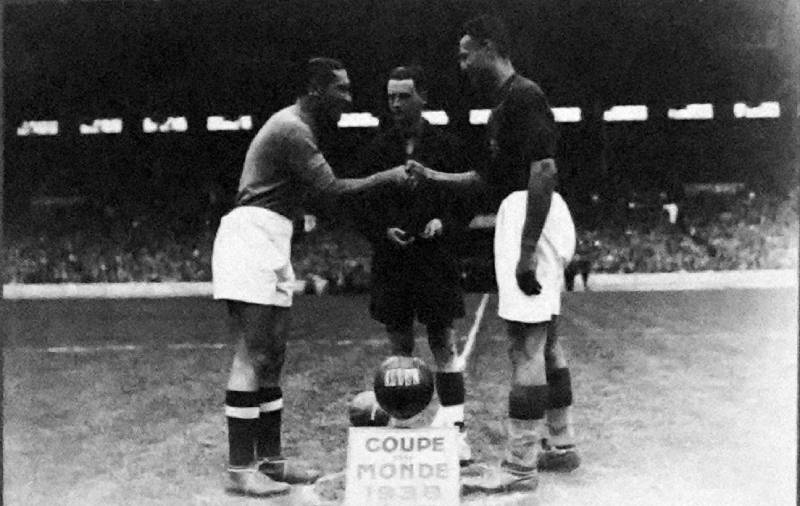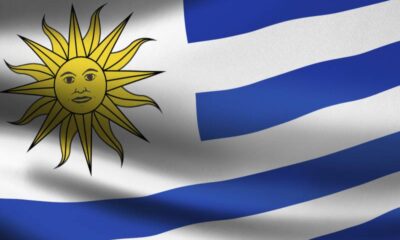Football
MS 1938 in France: The Anschluss of Austria, Benito Mussolini’s memorable message to the players, the Italians taking gold
A sportingly successful championship, but with a lot of political interference – this is probably how one could safely interpret the 1938 World Cup in France. The gold medals went to Italy, whose players were under considerable pressure, the home team disappointed, the Brazilians again without winning the title, Czechoslovakia finished in the quarter-finals. What did the third championship in history have to offer?

A sportingly successful championship, but with a lot of political interference – this is probably how one could safely interpret the 1938 World Cup in France. The gold medals went to Italy, but their players were under considerable pressure, the home team was disappointing, the Brazilians again without winning the title, and Czechoslovakia finished in the quarter-finals. What did the third championship in history have to offer?
The 1938 World Cup in France was held in ten cities or ten stadiums. Specifically, Paris, Reims, Lyon, Toulouse, Marseille, Strasbourg, Le Havre, Lille, Antibes and Bordeaux.
The championships of mainly European countries
In the end, this World Championship had fifteen participants, twelve of whom were from the European continent. Specifically, Belgium, Sweden, Italy, Switzerland, Czechoslovakia, the Netherlands, France, Germany, Hungary, Norway, Poland and Romania.
Only Brazil and Cuba participated in the 1938 World Championship in France, and the latter received one of the biggest beatings in the history of the World Championship (0::8) in the quarter-finals. The Asian continent was represented only by the Dutch East Indies.
Austria’s Anschluss, an attempt to avoid political problems
It should be noted, France was chosen as the host country by FIFA itself. Why? The reason is very simple, because it simply wanted to avoid all the political influences that could have affected this third World Cup. Just as the Italian dictator Benito Mussolini used the World Cup in 1934, or how Adolf Hitler used the 1936 Olympics for Nazi propaganda.
Although the tournament was held in the birthplace of the football organisation, politics did intervene in the championship, and in a very significant way.
Austria had qualified for the tournament, but after the March Anschluss it lost its sovereignty and could not participate in the 1938 World Cup in France. A brief look at history – the Anschluss was Hitler’s first step in his attempt to restore the German Reich. And, probably needless to say, what followed afterwards.
That is, the withdrawal of the Sudetenland, the 1939 occupation of Czechoslovakia, plus the seizure of the Lithuanian territory of Klaipeda, and on 1 September – the invasion of Poland and the beginning of the Second World War. Although many still believed that the growing conflict could still be extinguished, it was clear from this tournament that the political situation in Europe was very tense.
A sportingly successful tournament
Sportingly, however, the 1938 World Cup in France can be described as a success. In all, 18 matches were played at this championship, in which 84 goals were scored. This means an average of 4.67 goals per game.
However, FIFA still enforced the playing system it had already applied at the 1934 World Cup in Italy, i.e. a tournament without a group stage. It started with the first round, then went to the quarter-finals, semi-finals and final. And, of course, there was the battle for bronze.
Gold for Italy, Mussolini’s message
After the unsuccessful semi-final, Brazil fared better, beating Sweden 4:2. The Scandinavian country’s footballers lost to Hungary 1:5 in the semi-final.
The final battle was better handled by Italy, which after the result 4:2 could rejoice in winning the championship and the gold medals. However, there is one interesting aspect to this duel, which again brings to mind the still strong political aspect.
On the eve of that match, the Italian footballers received a message from the dictator Mussolini, which still read “win or die”.After the final, the goalkeeper of the Hungarian national team, Antal Szabo, reacted to this telegram by saying that he had scored four goals, but at least he had saved the Italians’ lives.
The end of Czechoslovakia in the quarterfinals
Czechoslovakia finished the 1938 World Championship in France in the quarter-finals, first drawing 1-1 with Brazil thanks to a goal by Oldřich Nejedlý, but losing 1-2 in the subsequent replay. The only goal of our national team was scored by Vlastimil Kopecký.
You can find out more not only about Czechoslovakia’s performance, but also about the whole tournament in the attached video above. It was on our YouTube channel that we recently started a World Cup special, where in each individual episode we focus on that year’s championship.
Dropped shorts, first patriot
Like previous tournaments, the 1938 World Cup in France offered some interesting oddities. For example, when Giuseppe Meazza, the captain of the Italian team, decided the semi-final against Brazil with a penalty, his shorts fell off, providing the most hilarious and bizarre moment of the entire championship.
Ernst Loertscher of Switzerland became the first player to be officially credited with an own goal, specifically in the match against Germany.
It should be added, the top scorer was Brazilian Leonidas da Silva with seven goals. Apart from him, the biggest stars of the tournament were György Sárosi of Hungary and Silvio Piola of Italy.
1. episode: 1930 World Cup in Uruguay
2. episode: 1934 World Cup in Italy
4. episode:: World Cup 1950 in Brazil
5. episode:: 1954 World Cup in Switzerland
6. episode:: WSC 1958 in Sweden
7. episode:: WSC 1962 in Chile
8. episode:: World Cup 1966 in England
9. episode:: 1970 World Cup in Mexico
10. episode:: MS 1974 in Germany
Sources: FIFA, ESPN












